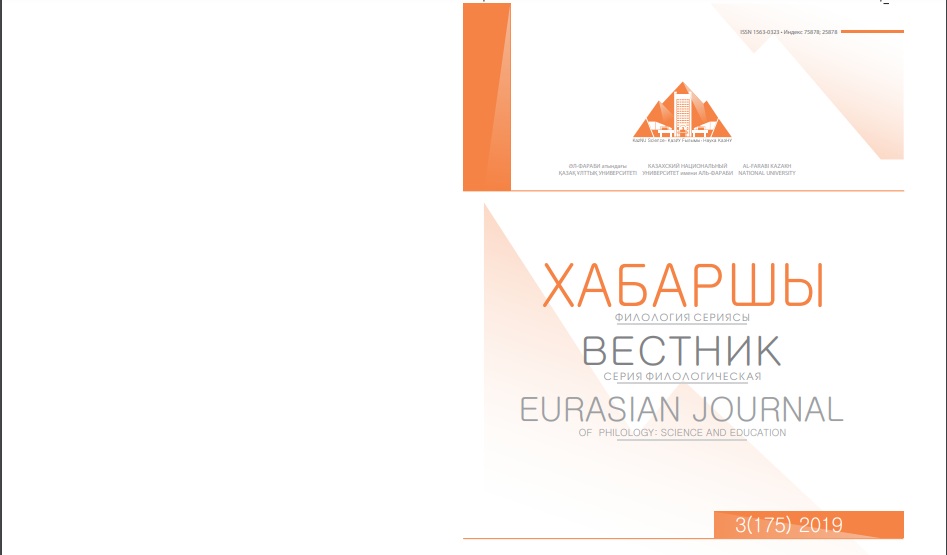Методы преодоления языкового барьера при обучении английскому языку
DOI:
https://doi.org/10.26577/EJPh-2019-3-ph25Аннотация
Общие принципы и методы преодоления языкового барьера при обучении английскому
языку, его компоненты в их взаимосвязи и обусловленности акцентировали наше внимание на
ряде требований в процессе формирования иноязычной коммуникативной способности. При
этом, как очевидно из изложенного в приведенном параграфе, мы не касались непосредственно
методических вопросов организации содержания в конкретных условиях обучения, выделения в
нем частей или единиц, соотносимых с определенными моментами динамики процесса обучения.
Между тем вопрос определения основной организационно-методической единицы организации
содержания обучения английскому языку, как свидетельствуют методические источники, уже
многие годы привлекает внимание исследователей. В качестве такой единицы называется тема.
И мы полагаем, что определение методического статуса темы как основной организационносодержательной единицы обучения, в рамках которой осуществляется процесс активизации
когнитивно-коммуникативной деятельности студентов, и в настоящее время является актуальным.
Лингвистическая и лингвострановедческая компетенции формируются опосредованно, через
содержание учебного материала и в процессе приобретения коммуникативной компетенции.
Формирование коммуникативной компетенции обеспечивается взаимосвязанным обучением
всем четырем видам речевой деятельности на основе коммуникативно-функционального
подхода. При этом правомерно подчеркивается необходимость включения в содержание
обучения коммуникативно-значимых речевых ситуаций. Указывается также на то, что отбор
языковых средств определяется не системой языка, а их речевыми функциями, с учетом их
коммуникативной ценности и способности обслуживать решение основных коммуникативных
задач в типичных ситуациях общения.






